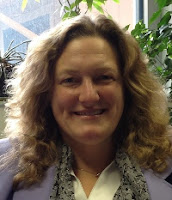You may think that all of your cells contain the same genetic sequence, with half of your DNA coming from your mom and half coming from your dad, but that is not always true. This CTOR short will introduce you to chimeras, hybrid creatures with more that one genome, that can be man-made or naturally occurring.
Check out the CTOR interview with Dr. Rich Schneider who uses chimeras as a research tool.
CTOR also has a blog post about chimeras and genetic mosaics.
Hosted by Kate Woronowicz
March 15, 2014
March 01, 2014
How Neurons Talk to Each Other - The Synapse and More: Susan Voglmaier
Your thoughts, decisions, emotions, and actions – essentially everything you do—relies on the incredibly complex circuits within your brain. Within these circuits, neurons signal to each other through a process called synaptic neurotransmission, whereby chemicals released by one neuron bind to receptors that are located on a neighboring neuron. This extremely complicated process requires an orchestra of protein interactions and is tremendously quick, taking place over about two thousandths of a second.
Given the importance of synaptic neurotransmission in how circuits function, and the role of circuits in cognition, it is not surprising that defects in synaptic transmission are thought to underlie mental illnesses such as schizophrenia. Today, we talk to Dr. Susan Voglmaier, a practicing psychiatrist and Assistant Professor in the Department of Psychiatry at UCSF. Dr. Voglmaier’s lab is interested in the process by which proteins called transporters prepare neurotransmitters for neurotransmission. Her research provides new insights into the basic molecular machinery underlying synaptic transmission, what might go awry in psychiatric disease, and, potentially, future ways to treat these diseases.
More on the Voglmaier Lab's research
Hosted by Karuna Meda
Given the importance of synaptic neurotransmission in how circuits function, and the role of circuits in cognition, it is not surprising that defects in synaptic transmission are thought to underlie mental illnesses such as schizophrenia. Today, we talk to Dr. Susan Voglmaier, a practicing psychiatrist and Assistant Professor in the Department of Psychiatry at UCSF. Dr. Voglmaier’s lab is interested in the process by which proteins called transporters prepare neurotransmitters for neurotransmission. Her research provides new insights into the basic molecular machinery underlying synaptic transmission, what might go awry in psychiatric disease, and, potentially, future ways to treat these diseases.
More on the Voglmaier Lab's research
Hosted by Karuna Meda
Subscribe to:
Comments (Atom)

